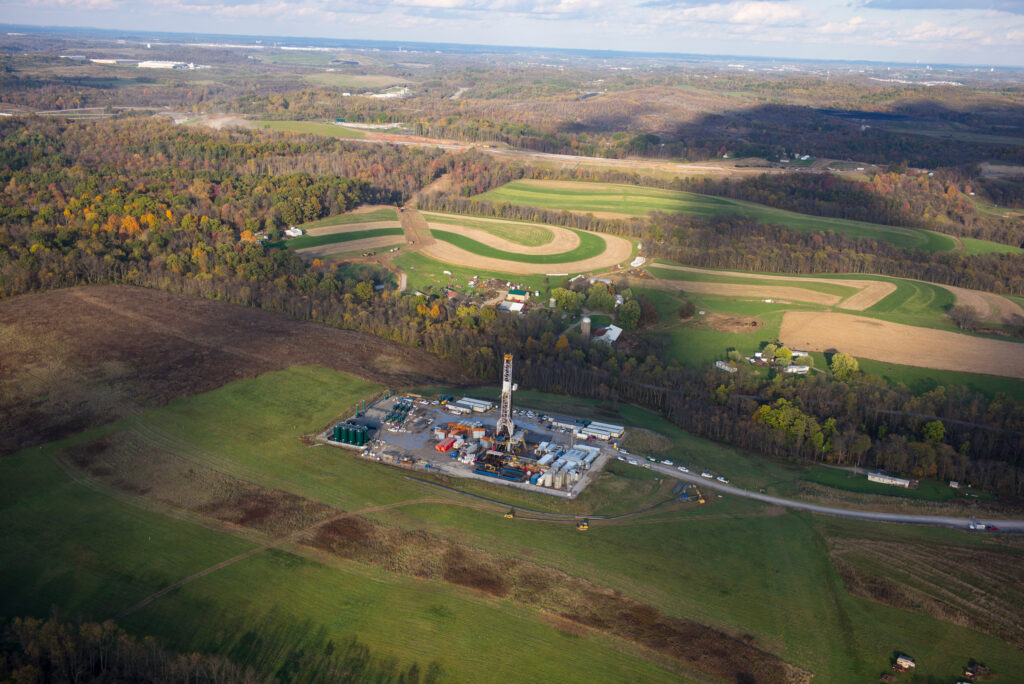Wastewater from Pennsylvania Natural Gas Wells Could Contain Vital Lithium Supply
In 2007, geoscientist Terry Engelder from Penn State University estimated that Pennsylvania might house over 50 trillion cubic feet of extractable natural gas deposits. His revised figure projected up to 489 trillion cubic feet of natural gas, enough to fulfill U.S. demand for almost two decades. This discovery prompted Pennsylvania’s fracking boom, resulting in around 13,000 unconventional wells drilled across the state.
Lithium in Wastewater
A recent revelation by the National Energy Technology Laboratory (NETL) has caught the gas industry’s eye. Their study indicates that wastewater from these unconventional wells might contain enough lithium to contribute to 38%-40% of U.S. lithium consumption. This crucial mineral is the backbone for many clean energy technologies, including electric vehicle batteries.
Source of Lithium
The study utilized chemical and production compliance data from the Pennsylvania Department of Environmental Protection. This data estimated the extraction of roughly 1,160 metric tons of lithium annually from the produced water. This water is a blend of fracking fluids and water from underground natural formations that surface during drilling. The presence of lithium in this water likely originates from past volcanic eruptions taking place when the natural gas deposits formed.
Justin Mackey, the study’s lead investigator, said, “Sometimes you might be surprised where that material actually comes from.” He explained that the U.S. research community is tirelessly seeking materials and methods to achieve climate goals and decarbonize the economy.
Industry Response
The Marcellus Shale Coalition, an industry trade group, responded positively to the news. The organization stated that this scientific analysis reaffirms how the abundant natural gas in Pennsylvania can enhance America’s energy, environmental, and national security.
Currently, the U.S. relies on lithium imports from Argentina, Chile, and China. With the accelerating shift towards clean energy, the demand for lithium is expected to soar.
Strategic Importance of Lithium
Research Geochemist at NETL, Mackey, stated that he focused on lithium due to its strategic importance for the American economy and defense industries, and its insecure supply chains. “We’re reliant on foreign entities like China and Chile and Australia to source these raw materials, but they’re critical to our economies,” he said. “And more importantly, they’re critical to decarbonizing the U.S. automotive fleet.”
The researchers found that the highest concentrations of lithium in the Marcellus are comparable to lithium brine, which is actively mined for lithium. Mackey optimistically said, “I think having more domestic sources of lithium is definitely a positive thing, especially if you don’t have to create a mine to exploit the resource.”
Skepticism and Concerns
Despite the potential benefits, experts have raised concerns about the economic feasibility of extracting lithium from wastewater on a large scale and the environmental and public health impacts this process could have.
John Quigley, a fellow at the Kleinman Center for Energy Policy, stated that the costs of extracting lithium in this manner are unknown, and this includes the challenges of processing and transporting wastewater across vast land areas. He emphasized that while extracting lithium may prove cost-effective, it should not justify continued drilling.
Currently, Eureka Resources in Pennsylvania is working on lithium extraction from wastewater. In 2023, the company announced successful extraction of “97 percent pure lithium carbonate” from wastewater and plans to implement this process into its Pennsylvania facilities in the coming years.
Concluding Remarks
As Pennsylvania moves forward, it must heed historical lessons. The state’s energy extraction history is marred by long-term, unintended consequences triggered by rapid technological advancements. Quigley added a note of caution, “A stampede toward lithium at all costs is not a smart move for the country. And certainly not for Pennsylvania.”
Original Story at insideclimatenews.org
